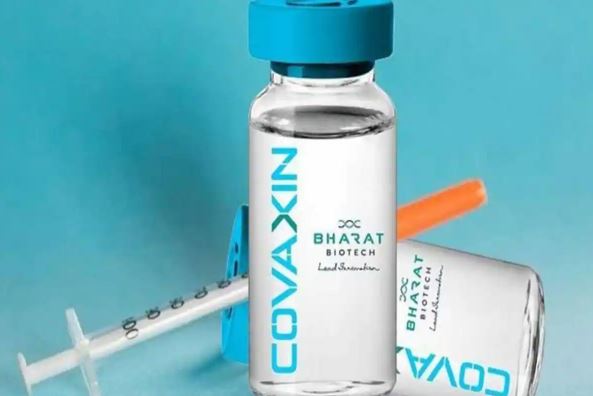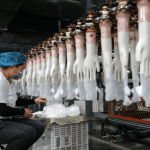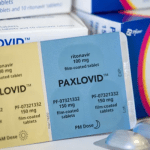The World Health Organization (WHO) has approved COVAXIN, India’s indigenous COVID-19 vaccine, for emergency use.
It was developed by Bharat Biotech and joins a growing range of vaccinations validated by the UN health agency for disease prevention.
“The Technical Advisory Group, convened by WHO and made up of regulatory experts from around the world, has determined that the Covaxin vaccine meets WHO standards for protection against COVID-19, that the benefit of the vaccine far outweighs risks and the vaccine can be used,” the WHO said in a statement.
It recommended the use of the vaccine in two doses, with an interval of four weeks in age groups 18 and above.
But the vaccine has not been advised for pregnant women as available data is “insufficient” to “assess vaccine safety or efficacy in pregnancy.”
The vaccine has a 78 percent efficacy against COVID-19 of any severity, according to the WHO, and is “particularly appropriate for low- and middle-income countries due to easy storage requirements.”
Pfizer-BioNTech, Oxford-AstraZeneca, Johnson & Johnson’s Janssen, Moderna, Sinopharm, and Sinovac are among the other COVID-19 vaccines approved by the specialized UN agency.
The World Health Organization (WHO) has approved COVAXIN, India’s indigenous COVID-19 vaccine, for emergency use.
It was developed by Bharat Biotech and joins a growing range of vaccinations validated by the UN health agency for disease prevention.
“The Technical Advisory Group, convened by WHO and made up of regulatory experts from around the world, has determined that the Covaxin vaccine meets WHO standards for protection against COVID-19, that the benefit of the vaccine far outweighs risks and the vaccine can be used,” the WHO said in a statement.
It recommended the use of the vaccine in two doses, with an interval of four weeks in age groups 18 and above.
But the vaccine has not been advised for pregnant women as available data is “insufficient” to “assess vaccine safety or efficacy in pregnancy.”
The vaccine has a 78 percent efficacy against COVID-19 of any severity, according to the WHO, and is “particularly appropriate for low- and middle-income countries due to easy storage requirements.”
Pfizer-BioNTech, Oxford-AstraZeneca, Johnson & Johnson’s Janssen, Moderna, Sinopharm, and Sinovac are among the other COVID-19 vaccines approved by the specialized UN agency.
The World Health Organization (WHO) has approved COVAXIN, India’s indigenous COVID-19 vaccine, for emergency use.
It was developed by Bharat Biotech and joins a growing range of vaccinations validated by the UN health agency for disease prevention.
“The Technical Advisory Group, convened by WHO and made up of regulatory experts from around the world, has determined that the Covaxin vaccine meets WHO standards for protection against COVID-19, that the benefit of the vaccine far outweighs risks and the vaccine can be used,” the WHO said in a statement.
It recommended the use of the vaccine in two doses, with an interval of four weeks in age groups 18 and above.
But the vaccine has not been advised for pregnant women as available data is “insufficient” to “assess vaccine safety or efficacy in pregnancy.”
The vaccine has a 78 percent efficacy against COVID-19 of any severity, according to the WHO, and is “particularly appropriate for low- and middle-income countries due to easy storage requirements.”
Pfizer-BioNTech, Oxford-AstraZeneca, Johnson & Johnson’s Janssen, Moderna, Sinopharm, and Sinovac are among the other COVID-19 vaccines approved by the specialized UN agency.
The World Health Organization (WHO) has approved COVAXIN, India’s indigenous COVID-19 vaccine, for emergency use.
It was developed by Bharat Biotech and joins a growing range of vaccinations validated by the UN health agency for disease prevention.
“The Technical Advisory Group, convened by WHO and made up of regulatory experts from around the world, has determined that the Covaxin vaccine meets WHO standards for protection against COVID-19, that the benefit of the vaccine far outweighs risks and the vaccine can be used,” the WHO said in a statement.
It recommended the use of the vaccine in two doses, with an interval of four weeks in age groups 18 and above.
But the vaccine has not been advised for pregnant women as available data is “insufficient” to “assess vaccine safety or efficacy in pregnancy.”
The vaccine has a 78 percent efficacy against COVID-19 of any severity, according to the WHO, and is “particularly appropriate for low- and middle-income countries due to easy storage requirements.”
Pfizer-BioNTech, Oxford-AstraZeneca, Johnson & Johnson’s Janssen, Moderna, Sinopharm, and Sinovac are among the other COVID-19 vaccines approved by the specialized UN agency.
The World Health Organization (WHO) has approved COVAXIN, India’s indigenous COVID-19 vaccine, for emergency use.
It was developed by Bharat Biotech and joins a growing range of vaccinations validated by the UN health agency for disease prevention.
“The Technical Advisory Group, convened by WHO and made up of regulatory experts from around the world, has determined that the Covaxin vaccine meets WHO standards for protection against COVID-19, that the benefit of the vaccine far outweighs risks and the vaccine can be used,” the WHO said in a statement.
It recommended the use of the vaccine in two doses, with an interval of four weeks in age groups 18 and above.
But the vaccine has not been advised for pregnant women as available data is “insufficient” to “assess vaccine safety or efficacy in pregnancy.”
The vaccine has a 78 percent efficacy against COVID-19 of any severity, according to the WHO, and is “particularly appropriate for low- and middle-income countries due to easy storage requirements.”
Pfizer-BioNTech, Oxford-AstraZeneca, Johnson & Johnson’s Janssen, Moderna, Sinopharm, and Sinovac are among the other COVID-19 vaccines approved by the specialized UN agency.
The World Health Organization (WHO) has approved COVAXIN, India’s indigenous COVID-19 vaccine, for emergency use.
It was developed by Bharat Biotech and joins a growing range of vaccinations validated by the UN health agency for disease prevention.
“The Technical Advisory Group, convened by WHO and made up of regulatory experts from around the world, has determined that the Covaxin vaccine meets WHO standards for protection against COVID-19, that the benefit of the vaccine far outweighs risks and the vaccine can be used,” the WHO said in a statement.
It recommended the use of the vaccine in two doses, with an interval of four weeks in age groups 18 and above.
But the vaccine has not been advised for pregnant women as available data is “insufficient” to “assess vaccine safety or efficacy in pregnancy.”
The vaccine has a 78 percent efficacy against COVID-19 of any severity, according to the WHO, and is “particularly appropriate for low- and middle-income countries due to easy storage requirements.”
Pfizer-BioNTech, Oxford-AstraZeneca, Johnson & Johnson’s Janssen, Moderna, Sinopharm, and Sinovac are among the other COVID-19 vaccines approved by the specialized UN agency.
The World Health Organization (WHO) has approved COVAXIN, India’s indigenous COVID-19 vaccine, for emergency use.
It was developed by Bharat Biotech and joins a growing range of vaccinations validated by the UN health agency for disease prevention.
“The Technical Advisory Group, convened by WHO and made up of regulatory experts from around the world, has determined that the Covaxin vaccine meets WHO standards for protection against COVID-19, that the benefit of the vaccine far outweighs risks and the vaccine can be used,” the WHO said in a statement.
It recommended the use of the vaccine in two doses, with an interval of four weeks in age groups 18 and above.
But the vaccine has not been advised for pregnant women as available data is “insufficient” to “assess vaccine safety or efficacy in pregnancy.”
The vaccine has a 78 percent efficacy against COVID-19 of any severity, according to the WHO, and is “particularly appropriate for low- and middle-income countries due to easy storage requirements.”
Pfizer-BioNTech, Oxford-AstraZeneca, Johnson & Johnson’s Janssen, Moderna, Sinopharm, and Sinovac are among the other COVID-19 vaccines approved by the specialized UN agency.
The World Health Organization (WHO) has approved COVAXIN, India’s indigenous COVID-19 vaccine, for emergency use.
It was developed by Bharat Biotech and joins a growing range of vaccinations validated by the UN health agency for disease prevention.
“The Technical Advisory Group, convened by WHO and made up of regulatory experts from around the world, has determined that the Covaxin vaccine meets WHO standards for protection against COVID-19, that the benefit of the vaccine far outweighs risks and the vaccine can be used,” the WHO said in a statement.
It recommended the use of the vaccine in two doses, with an interval of four weeks in age groups 18 and above.
But the vaccine has not been advised for pregnant women as available data is “insufficient” to “assess vaccine safety or efficacy in pregnancy.”
The vaccine has a 78 percent efficacy against COVID-19 of any severity, according to the WHO, and is “particularly appropriate for low- and middle-income countries due to easy storage requirements.”
Pfizer-BioNTech, Oxford-AstraZeneca, Johnson & Johnson’s Janssen, Moderna, Sinopharm, and Sinovac are among the other COVID-19 vaccines approved by the specialized UN agency.














